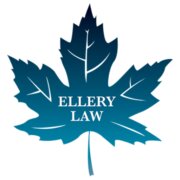Best Natural Resources Lawyers in Timmins
Share your needs with us, get contacted by law firms.
Free. Takes 2 min.
List of the best lawyers in Timmins, Canada
About Natural Resources Law in Timmins, Canada
Timmins, located in northeastern Ontario, is a region rich in natural resources, including minerals, forests, and water bodies. It is part of the Canadian Shield, providing a substantial base for mining activities, particularly gold production, which has historically been one of the region's most significant economic activities. In addition to mining, forestry and environmental conservation play crucial roles in the local economy. Natural Resources Law in Timmins governs the exploration, use, and protection of these valuable assets and addresses various issues related to property rights, environmental impact, and indigenous land rights.
Why You May Need a Lawyer
There are several situations where individuals or businesses may require legal assistance in the field of natural resources in Timmins:
- Mining and Mineral Rights: Understanding and obtaining mining licenses, dealing with property rights issues, and navigating complex regulatory requirements often require legal expertise.
- Environmental Compliance: Ensuring that activities comply with environmental laws and regulations to protect local ecosystems and water quality.
- Indigenous Land Claims: Addressing land claim issues and negotiating with indigenous communities whose rights are recognized in historical treaties and modern agreements.
- Forestry Operations: Managing forestry operations within legal frameworks, including logging permits and sustainable practices.
- Water Rights: Navigating water use rights and the legal implications of water contamination or conservation measures.
Local Laws Overview
Natural Resources Law in Timmins is governed by both federal and provincial legislation, with key aspects including:
- The Mining Act: Governs prospecting, mineral rights, and the responsibilities of mining companies.
- The Environmental Protection Act: Ensures protection of the environment through regulations on pollutants and emissions, impacting various resource-related activities.
- The Public Lands Act: Regulates the sale, lease, and use of public lands, essential for forestry and mining activities.
- Indigenous Rights: Requires compliance with agreements and respect for traditional land use patterns, necessitating legal understanding and negotiation.
Frequently Asked Questions
What is required to start a mining operation in Timmins?
To start a mining operation, you need to secure mineral rights through licensing from the provincial government, undergo environmental assessments, and comply with local regulations and possibly negotiate with indigenous groups.
How does environmental law affect natural resource operations in Timmins?
Environmental law mandates that any natural resource operation complies with specific regulations to mitigate harm to the environment, including pollution limits and rehabilitation of disturbed land.
Who manages water rights in Timmins?
Water rights are managed by provincial authorities, with guidelines ensuring sustainable use and protection of waterways and local ecosystems.
Are there any restrictions on cutting trees for commercial use?
Yes, logging activities are regulated by the Forestry Act, requiring permits and adherence to sustainable forestry practices to prevent over-harvesting and environmental degradation.
How do indigenous claims impact natural resource projects?
Indigenous claims can significantly impact projects as they require consultation and possibly accommodation where land rights overlap with resource extraction areas.
What are the penalties for non-compliance with environmental regulations?
Penalties for non-compliance can include fines, cessation orders, and potential criminal charges depending on the severity and impact of the infraction.
Can a private individual own mineral rights in Timmins?
Mineral rights are typically held by the Crown, but companies and individuals can obtain rights through appropriate licensing and compliance with the Mining Act.
What role do local municipalities play in natural resources law?
Local municipalities may impose additional bylaws and zoning regulations affecting how natural resources are managed and utilized within their boundaries.
How does one report an environmental violation related to natural resources?
Environmental violations can be reported to the Ministry of the Environment, Conservation and Parks, which will investigate and take appropriate action.
What are the legal obligations for land rehabilitation after mining operations?
Mining companies are required to develop and implement a closure plan to rehabilitate the land to its natural state or another agreed-upon condition post-extraction.
Additional Resources
Here are some resources for further information and assistance on natural resources legalities:
- Ontario Ministry of Natural Resources and Forestry
- Ministry of the Environment, Conservation and Parks
- Timmins Economic Development Corporation
- Natural Resources Canada
- Local Indigenous Communities and Organizations
Next Steps
If you require legal assistance with natural resources issues in Timmins, consider taking the following steps:
- Research and reach out to lawyers or law firms specializing in natural resources and environmental law.
- Prepare all relevant documentation and information related to your issue before consulting a legal expert.
- Contact local governmental bodies for any preliminary guidance or resources that may assist in your situation.
- Consider joining local industry associations or groups that offer networking and resources related to your natural resource interests.
Lawzana helps you find the best lawyers and law firms in Timmins through a curated and pre-screened list of qualified legal professionals. Our platform offers rankings and detailed profiles of attorneys and law firms, allowing you to compare based on practice areas, including Natural Resources, experience, and client feedback.
Each profile includes a description of the firm's areas of practice, client reviews, team members and partners, year of establishment, spoken languages, office locations, contact information, social media presence, and any published articles or resources. Most firms on our platform speak English and are experienced in both local and international legal matters.
Get a quote from top-rated law firms in Timmins, Canada — quickly, securely, and without unnecessary hassle.
Disclaimer:
The information provided on this page is for general informational purposes only and does not constitute legal advice. While we strive to ensure the accuracy and relevance of the content, legal information may change over time, and interpretations of the law can vary. You should always consult with a qualified legal professional for advice specific to your situation.
We disclaim all liability for actions taken or not taken based on the content of this page. If you believe any information is incorrect or outdated, please contact us, and we will review and update it where appropriate.










